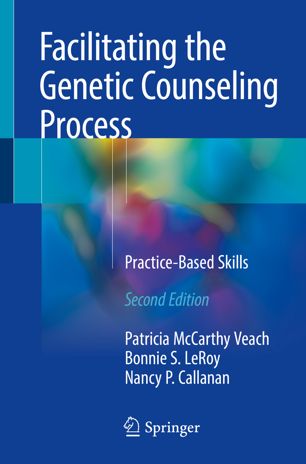

Most ebook files are in PDF format, so you can easily read them using various software such as Foxit Reader or directly on the Google Chrome browser.
Some ebook files are released by publishers in other formats such as .awz, .mobi, .epub, .fb2, etc. You may need to install specific software to read these formats on mobile/PC, such as Calibre.
Please read the tutorial at this link: https://ebookbell.com/faq
We offer FREE conversion to the popular formats you request; however, this may take some time. Therefore, right after payment, please email us, and we will try to provide the service as quickly as possible.
For some exceptional file formats or broken links (if any), please refrain from opening any disputes. Instead, email us first, and we will try to assist within a maximum of 6 hours.
EbookBell Team

0.0
0 reviewsNow in its revised and updated second edition, this text provides a practical way of teaching genetic counseling helping skills. The contents can be used by genetic counselor educators and supervisors to facilitate student professional development, including gaining knowledge about basic helping skills; practicing using the skills specific to genetic counseling services; and understanding one's self as a professional in training. New topics include: the Reciprocal-Engagement Model (REM) of genetic counseling practice; research findings about genetic counselor professional development, values, compassion fatigue, burnout, and distress; expanded discussion of patient factors; and more attention to cultural issues. Every chapter contains updated literature, and both revised and new structured activities and written exercises.
Salient features of this second edition include:• An “active” and “cooperative” pedagogical approach, with numerous structured activities and exercises emphasizing student self-reflection and engagement with core content.• Inclusion of skills which comprise key elements within three competency domains for accreditation of genetic counseling training programs in North America: genetics expertise and analysis; interpersonal, psychosocial, and counseling skills and assessment; and professional development and practice.• Content grounded in a widely-cited, empirically-derived model of genetic counseling practice.• Inclusion of patient scenarios and roles for skills practice based on genetic counseling cases and reflecting recent developments in genetic knowledge, testing, and technologies.